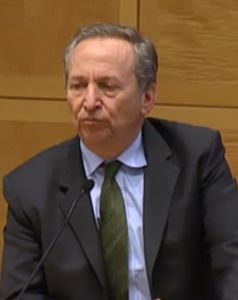Join getAbstract to access the summary!

Join getAbstract to access the summary!
Lawrence Summers
Economic Policy
Policy Responses to Crises
IMF, 2013
What's inside?
You’ve heard about the miracle of compound interest. How about the phenomenon of negative interest?
Recommendation
Economist Lawrence Summers is not backward in coming forward. His lecture delivers a bold – though cryptic – message: He posits the prospect of ongoing “secular stagnation.” Summers questions whether current fiscal and monetary policies are sufficient, or even appropriate, to generate the jobs and growth that would propel a recovery. His ideas aren’t wholly novel, but, considering Summers’s position as a member of the economic establishment, his frank views are refreshing. getAbstract recommends his noble effort to question current US economic policy.
Summary
About the Speaker
Lawrence Summers was director of President Obama’s National Economic Council until 2010. His previous positions include US Treasury secretary, president of Harvard University and chief economist of the World Bank.

















Comment on this summary